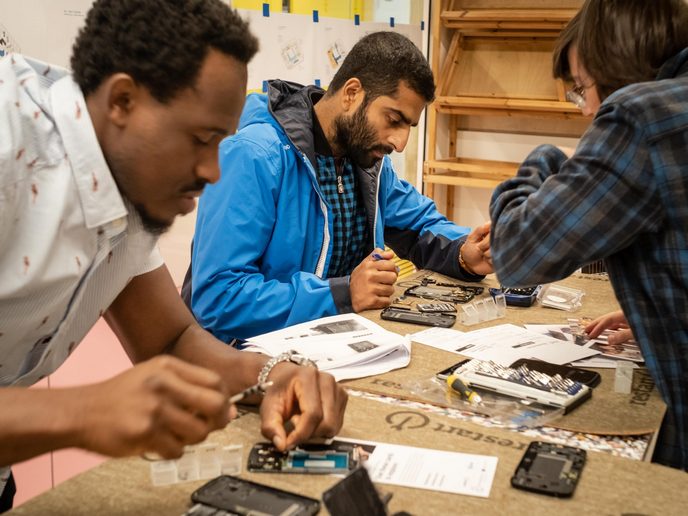A bootcamp model to accelerate community science
Citizen science has been around for a very long time. “Many of the people from centuries ago that we would today call scientists were not formally trained in the areas they researched in,” explains ACTION(opens in new window) (Participatory science toolkit against pollution) project coordinator Elena Simperl from Kings College London(opens in new window), United Kingdom. “They were simply interested and curious, and had the means to learn for themselves and experiment.” A key thing that has changed, notes Simperl, is technology. The digital world has dramatically increased the ability of citizens to contribute to scientific endeavours through, for example, recording and uploading findings on smartphones. This might involve the monitoring of air quality, or searching satellite images for specific astronomical phenomena. “As a computer scientist, I have always been interested in how technology can be used to both reach people, and communicate science,” says Simperl. “I began to realise however that for the sort of technological support that citizen science projects need, there is not a one-size-fits-all solution. There is a spectrum of needs.”
Accelerating citizen science
The 3-year, EU-funded ACTION project sought to apply the bootcamp concept – an intensive 6-month programme of interdisciplinary support popular with entrepreneurial or technology communities – to citizen science initiatives. Some 16 initiatives(opens in new window) from across Europe were selected, each one focused on a type of pollution, including light, soil, water, noise and air. To offer the possibility of partaking in its programme to a wide range of stakeholders, ACTION launched two highly competitive open calls for small-scale initiatives, and as a result Commission funding was cascaded to those selected. At the heart of the project was the ACTION Accelerator(opens in new window), a tailored programme developed by the project partners to provide each selected initiative with funding, training, mentorship and access to digital tools. “At the same time, we wanted to learn from them about how digital technologies can best support this type of work, in particular how to support collaborations and collective intelligence initiatives with volunteers, scientists and local communities,” adds Simperl. The Accelerator was able to assist projects in a variety of ways. The Street Spectra(opens in new window) initiative, for example, sought to map and characterise public lighting sources around the world. Astrophysicists could then use this data to find out more about the impact of urban street lighting on the environment. The ACTION Accelerator was able to address technical challenges, highlight the need to achieve greater data coverage, and raise awareness of potential data privacy issues, such as the risk that volunteers might inadvertently send information on their location or movements when uploading data. “This is just one example of how we worked to help initiatives,” says Simperl. “Different initiatives required different types of engagement.” Other projects assisted by ACTION Accelerator include an Italian experiment(opens in new window) to measure the ability of trees to absorb air pollution, with citizens collecting data from innovative sensors placed around urban forests. In Portugal, a mapping exercise(opens in new window) of pesticide and fertiliser use in home farming and gardening was carried out. Across all 16 initiatives, around 1 200 citizen volunteers took part, submitting almost 245 000 photographs and 7 600 audio files.
Leveraging people power
The project’s findings are contained in a freely available citizen science toolkit(opens in new window) to help academics design and realise citizen science projects that make the best use of available technologies. Simperl would also like to see more research work focused on using digital tools to scale up citizen science projects, and to train more citizen science teams. “I know that there are thousands of initiatives that could benefit from this,” she concludes.







